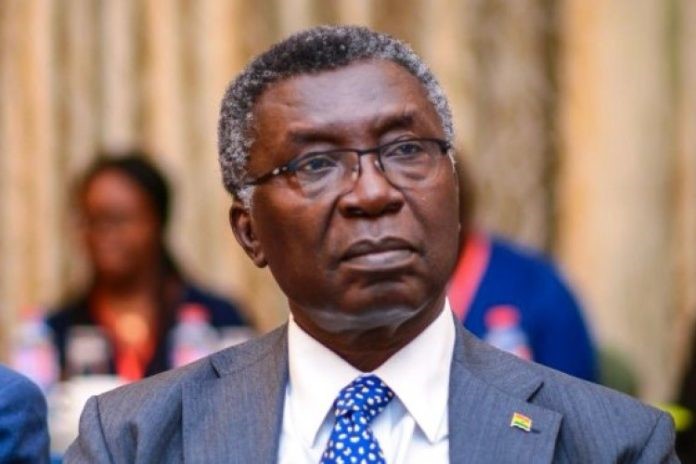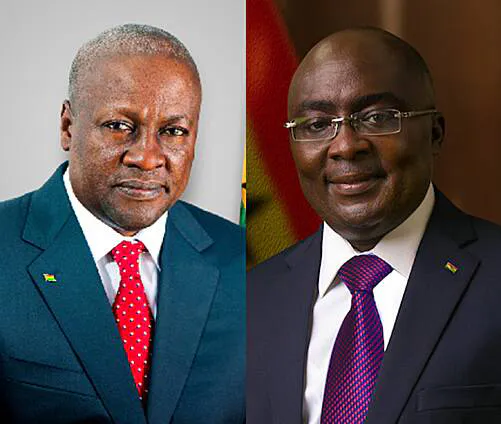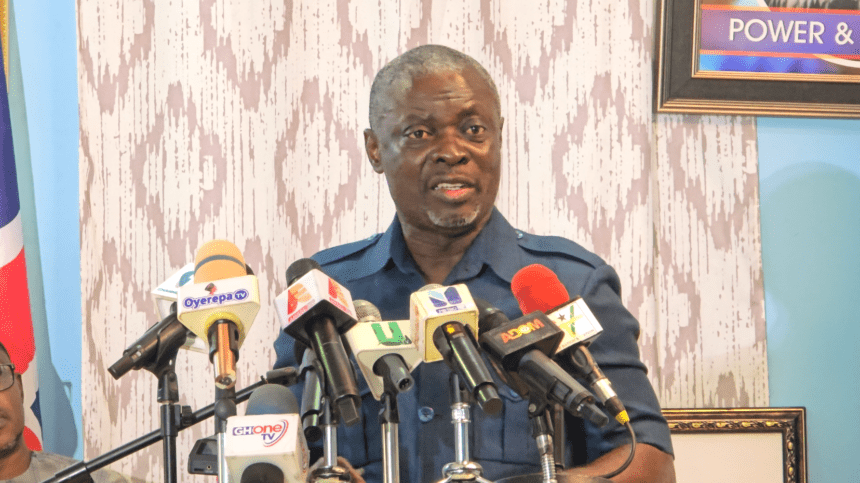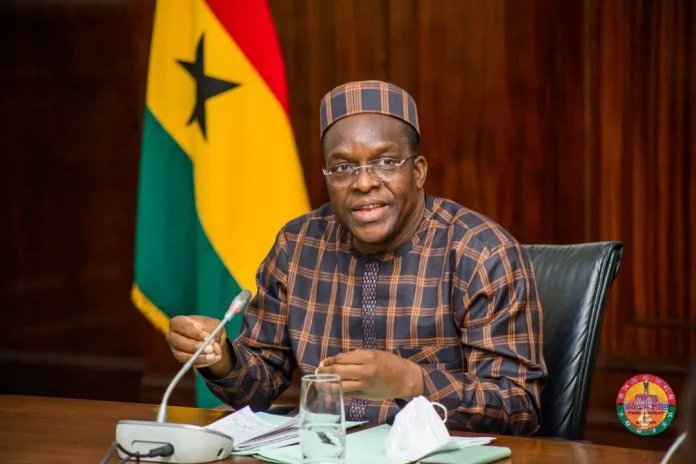Politics
The spiritual foundations of our democracy
Published
12 months agoon
By
Melody 911FM
I would have wished our system of governance would have been based on a traditional system that is part of us and is understood by the people. In the Akan communities, which I know well we have the king or a chief and his cabinet made up of various high-ranking “Nananom”.
Examples are Krontihene, who is responsible for the day-to-day administration; Adontenhene is Defence Minister; Sanaahene, the Finance Minister; Sumankwaahene could be classified as Minister for Health and Okyeame, the Information Minister.
This is largely the same in many other ethnic groups in the country. But in all these traditional structures, there are spiritual foundations that formed them.
Unfortunately, our tradition has not yet developed to a level that can manage the complex world challenges, such as those encountered in education, foreign affairs, environment, agriculture, infrastructure, transportation, law enforcement, and many others.
We have adopted the American Democratic system and it is not for me to judge whether it is working well or not. However, I subscribe to it. It is important to note that the foundations of this democracy are purely Biblical. Modern democracy as we know it started with the work of pilgrims who settled in America in the 17th Century.
The first group of pilgrims led by William Bradford sailed from Plymouth in England and arrived in Cape Cod in America in late December 1620. They believed the Church of England was so worldly and corrupt that they had to separate from it and establish their own church, one which was true to biblical principles in a new land where they could worship and live according to the teachings of Scripture. Before setting foot on the rocky coast of Cape Cod, the leaders of the pilgrims met in the captain’s cabin and drew up the first contract of government, the Mayflower Compact, which is regarded as America’s “birth certificate,”. Its purpose was to establish a “Holy Commonwealth” in which only believers in Jesus Christ were fully part of the community.
The Mayflower Compact is recognised by scholars as the founding document that led to a whole series of covenants, compacts, and constitutions culminating in the United States Constitution framed in 1787.
Consequently, there is widespread influence of Biblical thought and principles in the American legal system and the constitution of the United States. Indeed, the Bible is regarded by many as the standard of American Society and its legal and political systems, at least, as envisaged by their Founding Fathers.
Most if not all the presidential democracies in the world are a form of copy of the American system.
In this system, the basis of good governance is the separation of powers, which the framers of the American constitution borrowed from Chapter 33 and verse 22 of the book of the Prophet Isaiah in the Bible. This passage reads: “For the Lord is our judge, the Lord is our lawgiver, the Lord is our King; it is he who will save us.” Here the Bible clearly describes the separation of powers. The Lord is our judge points to the Judiciary; the Lord is our lawgiver refers to Parliament and the Lord is our King refers to the Executive.
Governments are, therefore, established on these biblical principles. These cardinal principles are to secure the lives of citizens; to preserve the liberties of individual citizens and to create conditions that will allow the citizens to pursue their happiness. Any government or for that matter any political tradition that becomes destructive of these ends should be abolished by the people. Any political tradition that flouts the rights of citizens, therefore, forfeits the right to govern the people, who in the first place decide who governs them.
The Bible tells us about the kind of individuals God recommends to lead nations. In Exodus 18: 21 Moses receives the following instructions from God: “But select capable men from all the people- men who fear God, trustworthy men who hate dishonest gain- and appoint them as officials over thousands, hundreds, fifties and tens”. Again, in Deuteronomy 1:13 Moses is told to: “Choose some wise, understanding men from each of your tribes, and I will set them over you”.
King David echoes the same message in Psalm 33: 12: “Blessed is the nation whose God is Jehovah.”
We must therefore always seek to choose people who fear God, are trustworthy, honest, and wise to lead us. Such people understand the concepts of rights of life, liberty, and the pursuit of happiness. Again, such leaders have respect for the separation of powers of the Judiciary, Legislature, and the Executive, knowing the vulnerabilities of power concentrated in one individual.
A Leader who professes Christianity but is not committed to God is just a pretender who does not appreciate the eternal biblical principles that must be respected and followed to ensure good service to God and humanity.
It is only when a Leader understands the spiritual foundation of our democracy that such a leader will seek to follow the many passages in the Bible that address bribery and corruption, such as these: God condemns the acceptance of kickbacks and bribes: Deuteronomy 16:19: “You shall not distort justice; you shall not be partial, and you shall not take a bribe, for a bribe blinds the eyes of the wise and perverts the words of the righteous.” Exodus 23:8: “You shall not take a bribe, for a bribe blinds the clear-sighted and subverts the cause of the just”. Proverbs 17:23: “A wicked man receives a bribe from the bosom to pervert the ways of justice”.
Again, God condemns cheating and unfair acts in negotiations. Leviticus 19:35-36: “Do not use dishonest standards when measuring length, weight, or quantity. Use honest scales and honest weights, an honest ephah and an honest hin. I am the LORD your God, who brought you out of Egypt”. Public officials must be content with their salary. Luke 3:14: “Some soldiers also asked him (Jesus), saying: And we, what shall we do? And he said to them: Do not extort anyone, nor slander; and be content with your wages”.
Anyone who is oblivious of these scriptural injunctions on bribery and corruption is not fit to lead a people whose democracy is firmly hinged on biblical principles.
What is more important is choosing a leader who believes and understands that, his character and spirituality direct the country he leads.
But a leader who does not fear God cannot be a good leader to offer prosperity to his people.
A leader who supervises treachery, corruption, and wanton destruction of his country’s environment for the interest of the few cannot be a leader who possesses the needed qualities to ensure the spiritual foundation of the country is advanced.
The current situation in Ghana clearly shows that, our leaders do not only lack what it takes to believe in the cardinal biblical principles our democracy hinges on but have equally departed from the face of God.
Our current democracy has not only bred sorrow and hardships among the large populace of Ghanaians but has gradually messed up the mindset of the average person.
Today our leaders have not only sewed hopelessness among our youth but have equally eroded any confidence in them that they can make in Ghana.
This clearly shows that, the spiritual foundation of our democracy has been lost on our leaders because they do not believe and practice any of the biblical principles supposed to be the basis of their rule.
Many other countries have chosen a form of government that is based on Islamic laws, and it appears to be working well for them. Still others rely on Hindu Culture for their governance system. Japanese are guided by Shintoism, and it has served them well.
Since we have chosen a democracy that is based on Biblical laws and precepts, we shall do well to build enduring legacies on this solid spiritual foundation.
You may like
Politics
Bawumia- “Mahama’s Economic Record Bad”
Published
2 weeks agoon
November 11, 2024By
Melody 911FM
The presidential candidate of the New Patriotic Party (NPP), Vice President Dr. Mahamudu Bawumia, has openly criticised former President John Dramani Mahama’s economic management, describing it as the worst among Ghana’s Fourth Republic leaders.
According to him, during Mr. Mahama’s tenure, the economy experienced substantial setbacks across multiple sectors, marked by soaring inflation, sluggish growth, and increasing unemployment.
Speaking at the Ghana CEO Presidential Gala in Accra last Thursday, Dr. Bawumia asserted that his criticism was based on hard economic data rather than partisan views.
He contrasted this with what he described as Ghana’s improved economic trajectory under NPP leadership, asserting that Mr. Mahama’s tenure represented a “decisive failure in economic stewardship.”
Dr. Bawumia stressed that his analysis was intended to highlight the need for sound economic management and that his remarks were meant to shed light on measurable outcomes of Mr. Mahama’s policies, which he said weakened the country’s economic resilience.
The NPP presidential candidate expressed his commitment to building on the progress achieved under the Akufo-Addo administration.
He underscored the importance of data-driven policies and positioned himself as the candidate most capable of navigating Ghana through future economic challenges.
“Despite the impact of global economic challenges, it might surprise some, including the former president himself, that his administration ranks the lowest in economic performance among all Fourth Republic leaders,” Dr. Bawumia reiterated.
He continued, “Yet, he speaks about our economic performance as though his was superior.”
Business Development
Dr. Bawumia also used the opportunity to reaffirm his commitment to strengthening business development in the country, stressing that resilient businesses are foundational to a thriving economy.
He praised the role of the private sector in creating jobs, driving innovation, and fostering sustainable growth.
The NPP flagbearer detailed policies introduced by the current administration to support Ghanaian businesses, including initiatives aimed at enhancing entrepreneurship, expanding access to credit, and advancing digitalisation.
According to Dr. Bawumia, these steps are critical to building a competitive, innovative, and resilient business sector.
He promised that, if elected, he would continue to prioritise business growth in order to ensure the Ghanaian economy remains vibrant and competitive on a global scale.
“Ladies and gentlemen, as you may know, Bawumia means business! From banking to vice presidency, my commitment to business development has been unwavering.
“Strong businesses lead to a strong economy—show me a prosperous nation, and I’ll show you resilient businesses behind it,” he concluded.
Politics
NPP, NDC have mismanaged Ghana – GUM
Published
2 weeks agoon
November 11, 2024By
Melody 911FM
The Ghana Union Movement (GUM) has criticised the New Patriotic Party (NPP), and the National Democratic Congress (NDC) for “mismanaging the country” and supervising the sale of state-owned businesses bequeathed by previous governments.
The Party said the sale of state-owned factories to private individuals and failure to revive defunct state enterprises largely accounted for the growing youth employment situation that had bedeviled the country.
These were contained in a news release issued by the Party’s founder and leader, Reverend Christian Kwabena Andrews, and shared with the Ghana News Agency.
The GUM urged the youth to “be concerned about their future” and vote to break the duopoly enjoyed by the NPP and NDC for decades.
“Embracing both NDC and NPP as a party is just endorsement of the continuity of the Ghanaian predicament. Ghanaian youth must rise to vote massively against these parties, because they were the source of our problems today,” it said.
The GUM said the slow pace of development since the commencement of the Fourth Republic in 1992 justified the call for the “total overhaul” of the 1992 Constitution “considering the mess caused by both NDC and NPP government respectively.”
The Party proposed the adoption of what it termed as “Hybrid African Democracy” which it said was suitable governance model for the country.
“The current model was copied line, hook, and sinker from the West, where they have established and structured institutions to make their democracy work,” it said.
The GUM also called for downsizing of Parliament to reduce the cost of running the business of the House.
The Party said that salaries and benefits awarded to 275 Members of Parliament as well as Article 75 Office Holders “drain the national purse than building it.”
“We urge the public to vote for the Ghana Union Movement for a reliable, better Ghana with the Ghanaian youth as its core,” the Party said.
The GUM caused a stir when it placed third in the 2020 presidential election, beating the traditional Convention People’s Party, People’s National Convention, and the Progressive People’s Party.
The party garnered 105,548 votes, representing 0.805 per cent of the total ballots cast.
Rev. Andrews has indicated that the Party would build on its achievements in 2020 and affect the 2024 presidential and parliamentary elections.
The GUM has promised to establish factories in every region and operate a free port to boost economic activities and improve the living conditions of the people.

In a significant development, Ghana’s Parliament Speaker, Alban Sumana Kingsford Bagbin is set to address the media on Wednesday, November 6, 2024.
The press conference, scheduled for 2:00 pm at the Justice D.F. Annan Auditorium, Job 600, Parliament House, aims to tackle critical issues affecting Ghana’s parliamentary democracy.
Recent Developments
Alban Bagbin’s address comes amidst significant political developments in Ghana.
As Speaker, he has played a pivotal role in shaping the country’s legislative agenda.
His leadership has been marked by efforts to strengthen parliamentary oversight and promote transparency.
The engagement seeks to provide a platform for the media to discuss pressing concerns impacting Ghana’s democratic growth.
The Speaker, Alban Bagbin, is expected to shed light on recent events that have shaped the country’s political landscape.

Bawumia- “Mahama’s Economic Record Bad”

Peter Okoye reacts to alleged song ownership by twin brother
















